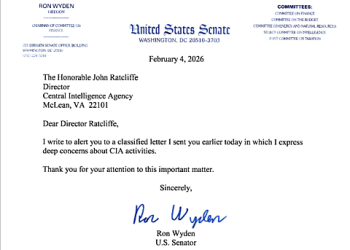One of the latest additions to the wellness beverage trend is mushroom coffee. This curious concoction has been garnering attention for its unique blend of regular coffee with medicinal mushrooms, promising a range of health benefits.
But is mushroom coffee just another fad, or does it truly hold up to its claims?
Let’s dive in.
What Is Mushroom Coffee?
Mushroom coffee is an intriguing blend of traditional coffee beans and medicinal mushroom extracts. Contrary to what the name might suggest, you won’t find bits of mushrooms floating in your cup.
Instead, the medicinal mushrooms undergo a drying and extraction process to pull out their beneficial compounds, which are then blended with regular coffee. The result is a beverage that tastes remarkably similar to your regular cup of joe, but with a subtle earthy nuance.
The mushrooms used in mushroom gummies or coffee are not your typical kitchen varieties. They are medicinal mushrooms, which have been used for centuries in traditional Chinese medicine for their health-promoting properties.
The most commonly used types in mushroom coffee include:
Reishi: Known for its immune-boosting and stress-reducing properties.
Chaga: Rich in antioxidants and touted for its potential anti-inflammatory effects.
Lion’s mane: Believed to support cognitive function and improve focus.
Cordyceps: Often associated with increased energy and athletic performance.
How Is Mushroom Coffee Made?
The creation of mushroom coffee involves a meticulous process. It starts with the drying and extraction of medicinal mushrooms to procure their beneficial compounds.
This extraction process involves a dual-step method, first using water and then alcohol, to pull out both water-soluble and fat-soluble compounds from the mushrooms. The extracted compounds are then dehydrated and ground into a fine powder
This mushroom extract is then mixed with ground coffee beans, typically in a 1-to-1 ratio, creating a blend that can be brewed just like regular coffee. The final product can be found in various forms, including whole bean, ground coffee, instant coffee packets, pre-made lattes, and even coffee pods, providing plenty of options for coffee lovers.
The History of Mushroom Coffee
While it may seem like a recent trend, the concept of mushroom coffee is not entirely new. During World War II, when coffee beans were in short supply, Finland turned to mushrooms as a coffee substitute. The rich, earthy flavor of certain mushrooms provided a satisfying alternative to the traditional brew.
In Asian countries, particularly in traditional Chinese medicine, mushroom spores have been revered for their medicinal properties for thousands of years.
The recent surge in popularity of mushroom coffee in the Western world is a reflection of this age-old practice, fuelled by growing interest in functional foods and natural wellness trends.
Benefits of Mushroom Coffee
Mushroom coffee blends are touted for their health benefits, many of which are attributed to the medicinal mushrooms used in the blend. Here are some potential benefits [1]:
Immune Support: Medicinal mushrooms are rich in polysaccharides like β-glucans, which have been shown to modulate the immune system and enhance immune response.
Stress Reduction: Mushrooms like Reishi are known as adaptogens, substances that help the body adapt to stress and balance cortisol levels.
Cognitive Enhancement: Lion’s mane mushroom is associated with cognitive benefits, including improved focus and memory.
Anti-inflammatory Effects: The antioxidant properties of Chaga mushrooms may help reduce inflammation in the body.
Increased Energy: The blend of caffeine from the coffee and cordyceps mushrooms might help enhance energy levels.
Lower Caffeine Content: Mushroom coffee typically has less caffeine than regular coffee, which can be beneficial for individuals sensitive to caffeine.
The Taste of Mushroom Coffee
Mushroom coffee might sound like it would have a strong, earthy flavor that is vastly different from regular coffee. However, most consumers report that mushroom coffee tastes quite similar to regular coffee.
The mushrooms used in the coffee undergo a process of extraction, and the resulting mushroom extract is blended seamlessly with coffee, resulting in a smooth, nutty flavor profile with a barely noticeable earthy undertone.
Mushroom Coffee vs Regular Coffee
While mushroom coffee is essentially coffee with added mushroom extracts, it differs from regular coffee in several ways.
First, mushroom coffee typically has less caffeine than regular coffee due to the addition of mushroom extract. This can be beneficial for those who are sensitive to caffeine or looking to reduce their caffeine intake.
In terms of health benefits, mushroom coffee potentially offers the benefits of both coffee and medicinal mushrooms. Regular coffee is known for its antioxidant properties and potential benefits for heart health, cognitive function, and more.
Mushroom coffee, with its addition of medicinal mushrooms, might offer additional benefits like immune support, stress reduction, and cognitive enhancement.
Side Effects of Mushroom Coffee
While mushroom coffee is generally considered safe, it may cause digestive issues in some individuals, especially those with a sensitivity to mushrooms.
Moreover, specific types of medicinal mushrooms, like chaga, are high in oxalates and may increase the risk of kidney stones in susceptible individuals.
Always consult with a healthcare provider before incorporating mushroom coffee into your diet, especially if you have pre-existing health conditions, are pregnant or breastfeeding, or are taking certain medications.
Top Mushroom Coffee Brands
There are several brands offering mushroom coffee, each with its unique blend. Here are a few popular options:
MUDWTR
MUDWTR is a coffee alternative that combines a blend of medicinal mushrooms, including chaga, reishi, and lion’s mane, with other organic ingredients like cacao and turmeric. It’s designed to offer a natural energy boost without the jitters of regular coffee.
Everyday Dose
Everyday Dose combines organic espresso with a trio of medicinal mushrooms (lion’s mane, reishi, and cordyceps) along with collagen and oat milk. The result is a ready-to-mix latte that aims to support immune health, cognitive function, and skin health.
Four Sigmatic
Four Sigmatic is perhaps the most well-known brand in the mushroom coffee world. They offer a variety of mushroom coffee blends, each featuring a different mix of medicinal mushrooms. These include options with lion’s mane and chaga for focus, and another blend with cordyceps and chaga for energy.
Nootrum
Nootrum takes a slightly different approach with a blend of instant coffee, lion’s mane extract, and chaga extract. It’s designed to be a nootropic coffee, aimed at enhancing cognitive function.
Real Mushrooms
Real Mushrooms offers a 5 Defenders Mushroom Coffee, which combines organic, fair-trade coffee with a blend of five medicinal mushrooms, including reishi, chaga, turkey tail, shiitake, and maitake. This blend is designed to support immune health.
FAQs
Here, we discuss a few frequently asked questions about mushroom coffee.
What Are the Side Effects of Mushroom Coffee?
Mushroom coffee is generally safe for most people, but it may cause digestive issues in some. It’s also important to note that chaga mushrooms are high in oxalates, which could increase the risk of kidney stones in susceptible individuals.
Always consult with a healthcare provider before incorporating mushroom coffee into your diet.
What Is the Difference Between Mushroom Coffee and Regular Coffee?
While mushroom coffee is essentially coffee with added mushroom extracts, it differs from regular coffee in terms of its caffeine content and potential health benefits.
Mushroom coffee typically has less caffeine and might offer additional benefits like immune support, stress reduction, and cognitive enhancement.
What Does Mushroom Coffee Taste Like?
Despite what the name might suggest, mushroom coffee tastes quite similar to regular coffee. The mushroom extract blends seamlessly with the coffee, resulting in a smooth, nutty flavor with a subtle earthy undertone.
Is Mushroom Coffee Ok for Your Liver?
While there’s no definitive research on the effects of mushroom coffee on liver health, some studies suggest that certain medicinal mushrooms, such as reishi and chaga, might have liver-protective properties. However, more research is needed in this area.
Conclusion
Mushroom coffee is an intriguing blend of traditional coffee and medicinal mushrooms, offering a potentially healthier twist to your morning cup of joe. While it’s associated with several health benefits, more research is necessary to substantiate the claims.
As always, it’s important to consult with a healthcare provider before incorporating new foods or beverages into your diet, especially if you have pre-existing health conditions or are taking medication.
Whether you’re a coffee connoisseur or a health enthusiast, mushroom coffee might be worth a try.
References:
Valverde ME, Hernández-Pérez T, Paredes-López O. Edible mushrooms: improving human health and promoting quality life. Int J Microbiol. 2015;2015:376387. doi: 10.1155/2015/376387. Epub 2015 Jan 20. PMID: 25685150; PMCID: PMC4320875.
Read more:
What Is Mushroom Coffee? A Healthier Twist to Your Morning Cup















